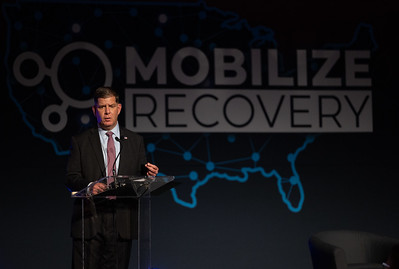
These are uncertain times that have presented several challenges for America’s workers and their families. Through all these changes, our workforce has remained resilient, and the Department of Labor is committed to continuing to support workers the best we can.
Protecting equitable access to mental health and substance use treatment is a priority for me as your Labor Secretary and personally. When I sought treatment for alcoholism in my 20s, I was fortunate to have access to needed care through my union. But during that time, I also benefitted greatly from the compassion of supervisors and colleagues. I learned first-hand that a supportive environment can make all the difference—to both employees with mental health conditions and the employers who want to keep them productive and on the job.
That’s why, in addition to ensuring people can access the care they’re entitled to, we’re educating about steps employers and workers can take to foster mental health-friendly workplaces at this unprecedented time. Our new “Mental Health at Work: What Can I Do?” campaign communicates that, whether we’re a company leader, manager, co-worker or person with a mental health condition ourselves, we all have a role to play in promoting well-being at work. The centerpiece of this campaign is a powerful public service announcement (PSA) in which we highlight the ways everyone in a work setting can contribute to a mental health-friendly workplace—from setting the tone for an inclusive workplace to providing or requesting accommodations and assistance, to being a source of support to peers and colleagues.
This PSA was produced by the Campaign for Disability Employment (CDE), a collaborative initiative funded by our Office of Disability Employment Policy (ODEP). Through the experiences of real people, it brings to life ODEP’s four-part employer policy framework called the “4 A’s of a Mental Health Friendly Workplace.” The “4 A’s” are building awareness and a supportive culture, providing accommodations to employees, offering employee assistance and ensuring access to treatment. To develop both this framework and the PSA, ODEP enlisted input from a number of leading mental health and disability organizations and experts.
That said, promoting best practices for supportive workplaces is only one dimension of ODEP’s work on this issue. Through a range of grant programs and interagency initiatives, ODEP also is helping job seekers with serious mental health conditions prepare for and obtain employment and is working to understand and support the mental health needs of youth as they prepare to enter the workforce in the wake of the COVID-19 pandemic. It’s also helping educate about support for people experiencing Long COVID, symptoms of which include anxiety and depression.
Now more than ever, we all benefit from flexible, supportive workplace practices and employment services that promote good mental health. I certainly did, and as Secretary of Labor, I am working to ensure others do too. Doing so is good for workers, good for business and good for America. I hope you’ll join me in this pursuit—because we all have a role to play.
Marty Walsh is the U.S. Secretary of Labor. Follow him on Twitter and Instagram at @SecMartyWalsh.

 U.S. Department of Labor Blog
U.S. Department of Labor Blog